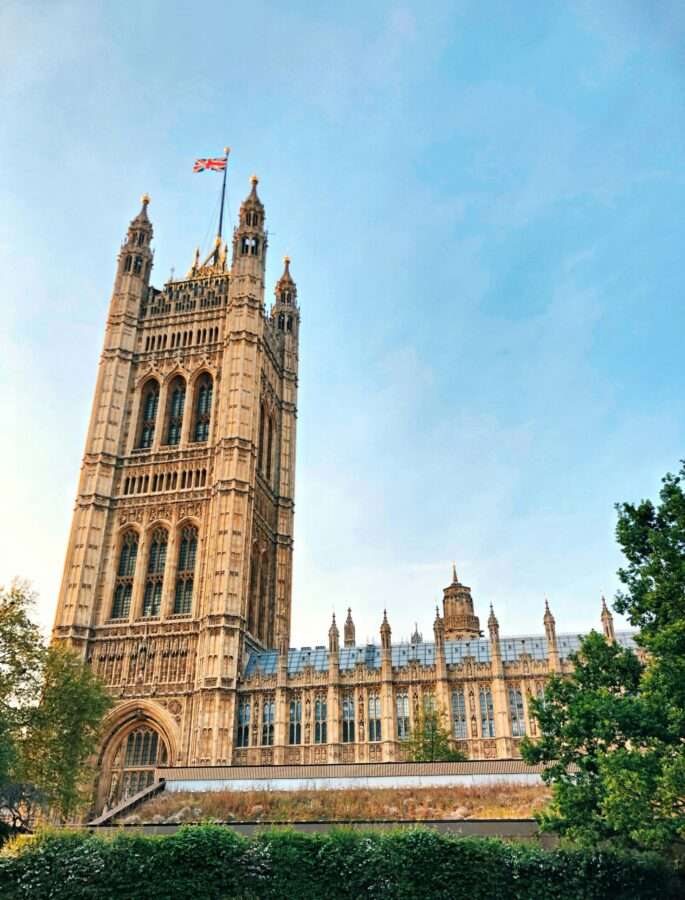The UK government underwent a significant change following the general election on Thursday, 4 July 2024. The new Parliament convened on Tuesday, 9 July 2024, to elect the Speaker and swear in MPs and Lords. The formal State Opening of Parliament and the King’s Speech on Wednesday, 17 July 2024, marked the official start of the new parliamentary session.
The Legislative Process
Understanding the legislative process in the UK Parliament is crucial. Each bill undergoes a structured journey before becoming law. This blog explores the stages of this process, highlights key bills that have received Royal Assent, and explains essential terms.
Bills That Have Received Royal Assent
Royal Assent is the final step where the monarch formally agrees to make a bill an Act of Parliament. Recent bills that have received Royal Assent include:
- Animal Welfare (Livestock Exports) Act 2024: Prohibits the export of certain livestock for slaughter to enhance animal welfare standards.
- Automated Vehicles Act 2024: Regulates the use and safety standards of automated vehicles.
- Digital Markets, Competition and Consumers Act 2024: Regulates competition in digital markets and strengthens consumer rights.
- Finance Act 2024: Covers public finance, tax changes, and budgetary measures.
- Investigatory Powers (Amendment) Act 2024: Refines the legal framework for surveillance and intelligence gathering.
Bills Progressing in the Second House
A bill must be approved by both the House of Commons and the House of Lords. Current bills in the second house include:
- Offshore Petroleum Licensing Bill 2023-24: Regulates licenses for offshore petroleum extraction.
- Economic Activity of Public Bodies (Overseas Matters) Bill 2022-23: Ensures public bodies are not unduly influenced by foreign states.
- Data Protection and Digital Information Bill 2022-23: Updates regulations on personal data processing.
- Renters (Reform) Bill 2022-23: Reforms laws governing rented homes.
- Holocaust Memorial Bill 2022-23: Provides for the construction of a Holocaust Memorial and Learning Centre.
Bills Progressed Through Bill Committee in the First House
In the first house, bills undergo detailed examination by committees. A notable bill that has recently completed this stage is:
- Criminal Justice Bill 2023-24: Amends criminal law to improve the efficiency and effectiveness of the justice system.
Bills Progressed Beyond Second Reading in the First House
The Second Reading is where the general principles of the bill are debated. Bills that have moved beyond this stage include:
- Economic Activity of Public Bodies (Overseas Matters) Bill 2022-23
- Data Protection and Digital Information Bill 2022-23
- Renters (Reform) Bill 2022-23
- Holocaust Memorial Bill 2022-23
- Criminal Justice Bill 2023-24
Bills in the Initial Stage
The First Reading introduces a bill to Parliament, outlining its title and main objectives without debate. Current bills in this stage include:
- Transport Bill 2023-24: Addresses transport policy, infrastructure development, and regulatory reforms.
Understanding Key Terms in the Legislative Process
- First Reading: Introduction of a bill without debate.
- Second Reading: Debate on the bill’s general principles.
- Committee Stage: Detailed examination and possible amendments by a committee.
- Report Stage: Further debate and amendments following the Committee Stage.
- Third Reading: Final debate in the first house.
- Royal Assent: Monarch’s formal agreement to make the bill an Act of Parliament.
The Role of Committees
Committees scrutinise legislation thoroughly. Types of committees include:
- Public Bill Committees: Consider bills in detail and propose amendments.
- Select Committees: Examine specific policy areas.
- Joint Committees: Consist of members from both Houses to consider specific subjects or bills.
Public Participation
Public participation is encouraged throughout the legislative process. The public can:
- Submit evidence to committees: Provide input on specific bills or inquiries.
- Engage with MPs and Lords: Communicate views and concerns to representatives.
- Participate in public consultations: Offer opinions during consultation periods for proposed legislation.
By understanding these processes, citizens can better engage with and influence the legislative decisions that shape their lives.
Key takeaway points:
- Stages of Legislation: The UK legislative process is structured with multiple stages, including First Reading, Second Reading, Committee Stage, Report Stage, Third Reading, and Royal Assent.
- Royal Assent: This is the final step in the legislative process where the monarch formally agrees to make a bill an Act of Parliament, thus making it law.
- Current Key Bills: Notable bills that have received Royal Assent in 2024 include the Animal Welfare (Livestock Exports) Act, Automated Vehicles Act, Digital Markets, Competition and Consumers Act, Finance Act, and Investigatory Powers (Amendment) Act.
- Bills in Progress: Significant bills currently progressing through Parliament include the Offshore Petroleum Licensing Bill, Economic Activity of Public Bodies Bill, Data Protection and Digital Information Bill, Renters (Reform) Bill, and Holocaust Memorial Bill.
- Public Participation: The legislative process encourages public involvement through submitting evidence to committees, engaging with MPs and Lords, and participating in public consultations, allowing citizens to influence legislation directly.

